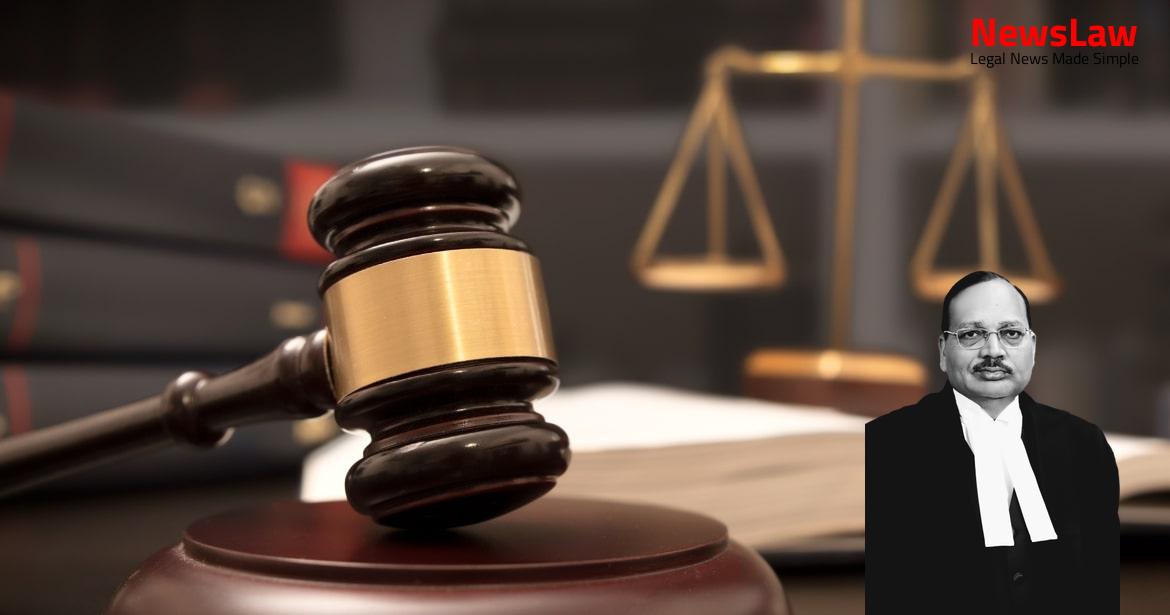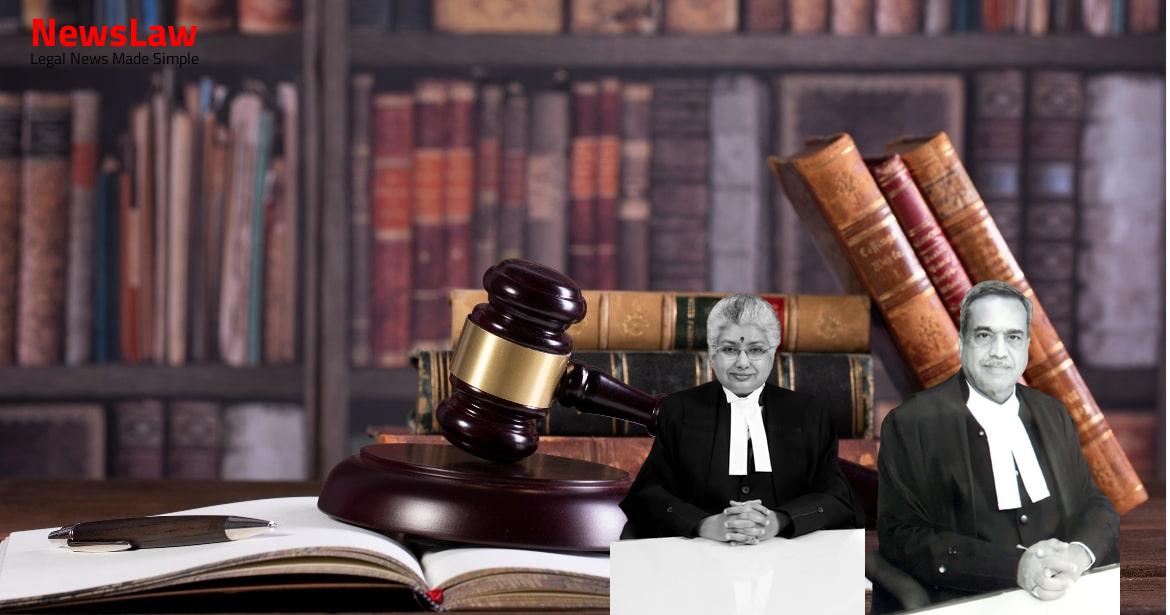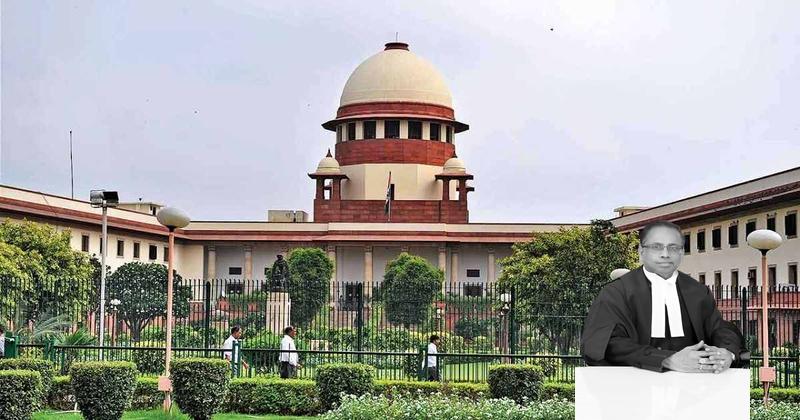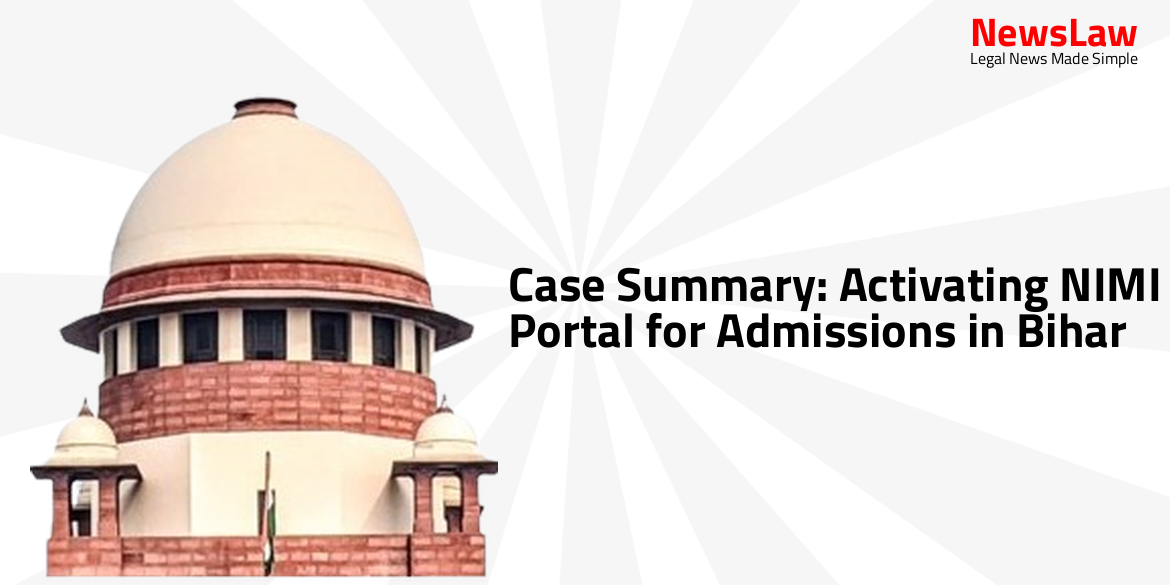The legal case revolves around the crucial aspect of transparency in elections, particularly focusing on the implications of non-disclosure of assets by candidates. The court’s in-depth legal analysis sheds light on the concept of corrupt practices in electoral processes, emphasizing the need for adherence to strict statutory laws. Dive into this case summary to gain insights into the intersection of election laws, corrupt practices, and the significance of transparency in maintaining the integrity of democratic processes.
Facts
- The Appellant filed her nomination for the Mysore Municipal Corporation election in 2018 from Ward No. 36, which was reserved for Backward Class-B (Women).
- In her Affidavit of Assets submitted with the nomination, the Appellant declared details of her and her husband’s movable and immovable properties.
- The results of the elections were declared on 3 September 2018, with the Appellant being declared as the successfully elected Councillor from Ward No. 36.
- A false allegation was made by Respondent No. 4 in the Election Petition that the Appellant had falsely declared that her husband did not possess any immovable property to benefit from reservation under Backward Class-B (Women).
- The Trial Court’s judgment on 16 April 2019 rejected the allegations of false declaration made against the Appellant in her Affidavit of Assets.
- High Court remanded Election Petition No.4 of 2018 back to the Trial Court for reconsideration.
- Trial Court allowed Election Petition No.4 of 2018 and set aside the election of the Appellant.
- Appellant filed an appeal in the High Court of Karnataka at Bengaluru, which was registered as MFA No.49 of 2021.
- High Court dismissed the Appeal (MFA No.49 of 2021) by the judgment and order dated 26 May 2021.
- Appellant was successful in the Municipal election securing 3295 votes compared to 2902 votes of Respondent No.4.
- Election Petition initially dismissed, but remanded back by the High Court for reconsideration.
- Special Leave Petition under Article 136 of the Constitution filed against the judgment.
Also Read: Ex post facto Environmental Clearance in Bio-Medical Waste Case
Arguments
- Mr. Diwan questioned the authority of the Election Commission to issue the notification requiring candidates to disclose their assets and the assets of their spouses and dependents.
- He argued that there was no vacuum in the KMC Act that required filling up by the issuance of a notification.
- The notification dated 14 July 2003 was issued based on a judgment of the Court.
- The High Court recorded that the statutory Form No 2 under the KMC Rules does not require a candidate to file any affidavit of assets and liabilities.
- Mr. Diwan emphasized the difference between elections conducted by the Election Commission of India and elections governed by the KMC Act and/or the KMC Rules.
- He argued that elections need to strictly adhere to the Election Law, a self-contained statutory law.
- Mr. Diwan submitted that false declarations regarding assets constitute corrupt practices, irrespective of their impact on the election.
- He argued against the High Court’s finding that the appellant indulged in corrupt practices.
- Mr. Diwan emphasized the strict construction of penal statutes in his submission.
- He cited cases to support the principles he presented in court.
- In summary, Mr. Diwan contested the High Court’s decision on various grounds regarding the election process and corrupt practices.
- The Petitioner accepted the notifications from the State Election Commission as binding and filed an affidavit accordingly.
- The argument that the State Election Commission did not have the power to issue the Notifications requiring candidates to disclose their spouses’ assets was rebutted.
- The decision in the Association for Democratic Reforms case was cited to support the validity of the notifications.
- Reference to Krishnamoorthy v. Sivakumar case where failure to disclose information led to nullification of election results.
- The Appellant did not question the validity of the notifications dated 14 July 2003 and 19 June 2018 issued by the State Election Commission.
Also Read: Land Dispute Legal Analysis
Analysis
- Voters have the right to relevant information about candidates in elections, including criminal antecedents, assets, liabilities, and educational qualifications.
- Non-disclosure of assets may constitute corrupt practices and undue influence as per election laws.
- Ensuring purity of elections at all levels is of national importance and requires a uniform policy without impeding the division of powers between the Union and States.
- Indian federalism combines federal and unitary features, with the Constitution as the supreme law.
- Judicial interpretation of ‘undue influence’ in election laws applies uniformly to different statutes.
- Election petitions are statutory proceedings governed by the relevant laws and rules.
- The right to elect, be elected, or dispute elections is subject to statutes and not inherent.
- The Election Commission has wide powers but law-making authority rests with the Parliament.
- Non-disclosure of assets in municipal elections amounts to corrupt practice and undue influence as per established law.
- The Election Commission must operate within the legal framework set by the Parliament or State legislatures.
- The Election Commission has wide powers under Article 324(1) of the Constitution of India to issue directions necessary for conducting free and fair elections, subject to the contours of law.
- The State Election Commission has similar powers under Article 243-K and 243-ZA(1) as the Election Commission of India under Article 324(1) of the Constitution of India.
- The notifications issued by the State Election Commission mandating disclosure of assets by candidates were within the legal boundaries.
- The Election Commission and State Election Commission have powers to issue directions related to the conduct of elections, including requiring disclosure of assets by candidates.
- The Election Commission’s notification to file affidavits revealing assets, including those of spouses, was valid and within legal parameters.
- Any false statement regarding a candidate, such as the suppression of information about the assets of a spouse, would constitute corrupt practice under the KMC Act.
- Section 35(1)(b) of the KMC Act states that a corrupt practice by a returned candidate, election agent, or any other person with their consent can lead to the election being declared void.
- Section 39 of the KMC Act lists the acts/practices considered to be corrupt practices.
- The Court can declare an election void if it finds that a party has committed a corrupt practice.
- Omission to incorporate provisions requiring disclosure of assets in the KMC Election Rules is against the spirit of the Constitution and public interest
- No grounds to interfere with the judgment of the High Court setting aside the election of the Appellant
Also Read: Analysis of Limitation in IBC Proceedings
Decision
- The appeal has been dismissed.
- The decision was made based on the information provided in the case.
- The ruling stands and the original decision is upheld.
Case Title: S. RUKMINI MADEGOWDA Vs. THE STATE ELECTION COMMISSION (2022 INSC 958)
Case Number: C.A. No.-006576-006576 / 2022



